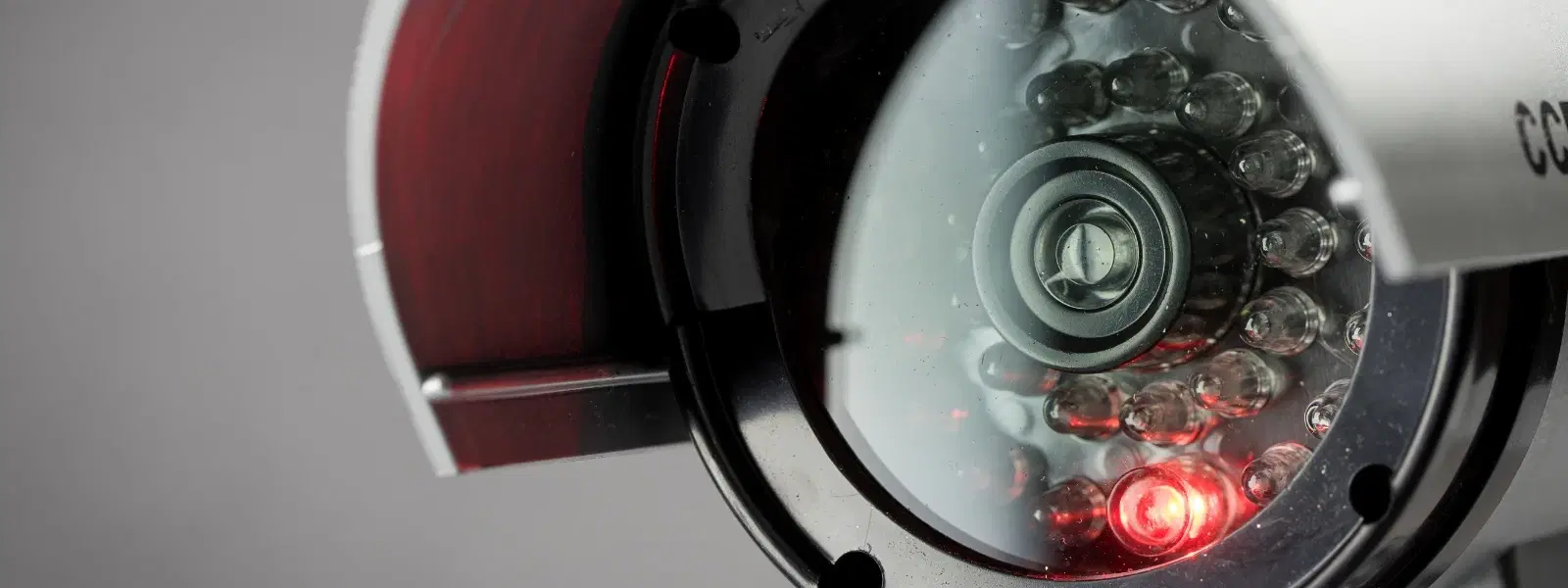
Consumer Electronics
•03 min read
Imagine a sudden power outage and wondering if your CCTV system will still protect your home or business. This post explains how CCTV cameras function during power cuts, clarifying whether they continue recording when there is no electricity, and outlining various alternative solutions for uninterrupted security.
Traditional CCTV systems rely on mains power to operate. Without electricity, these systems cannot function normally. Recording typically stops when power is cut unless the system is equipped with alternative power mechanisms. It is important to understand that standard setups do not offer cctv functionality without electricity.
During a power interruption, most wired systems lose the ability to record. However, the impact on footage depends on the camera type and power setup. If the cameras incorporate battery-powered cctv cameras or have a dedicated power backup for cctv cameras, recording continues even during outages.
Battery-powered solutions, such as cctv cameras with built-in batteries, ensure that your system keeps operating during an outage. These cameras usually come with a limited operation window, and their performance is contingent on battery capacity. They are an effective choice for those seeking cctv without power interruptions.
For a sustainable approach, solar-powered security cameras are increasingly popular. These innovative systems harness renewable solar energy, ensuring continuous surveillance even during prolonged outages. Solar-powered security cameras serve as a reliable option for off-grid cctv systems, especially where consistent sunlight is available.
Wireless security cameras without power often integrate backup solutions, combining the benefits of mobility and uninterrupted operation. They differ from traditional wired cameras by offering flexible installation options and the capability to utilise alternative power sources, ensuring security is maintained during power cuts.
Uninterruptible power supplies (UPS) are commonly used as a reliable power backup for cctv cameras. These systems immediately kick in when a power outage occurs, ensuring that your security setup continues recording. Additionally, generators are another practical solution for extended outages, providing a dependable energy source.
Innovative alternatives include wind-powered cameras and portable power banks. These modern solutions offer flexibility, especially in remote areas. PoE (Power over Ethernet) systems with battery backup are also available, enabling simpler installations while ensuring that security remains intact even when mains power is unavailable.
When evaluating your options, consider the camera's battery capacity, the type of system, and the installation environment. Understanding your unique security needs will help determine whether a battery-powered, solar-powered, or wireless security system suits you best. Trusted platforms like Tata Neu, known for expert guidance and comprehensive support, can assist in making an informed decision while recognising the benefits of NeuCoins rewards during purchases. Such features make it easier to shop smartly and progress in life with ease and convenience.
Regular maintenance is key to ensuring continuous operation. Schedule routine checks to confirm that your backup systems, including batteries and solar panels, are in good working order. Keeping a maintenance log helps in timely replacements and avoiding unexpected interruptions. A systematic approach not only extends the life of your system but also builds a deeper trust in your security setup.
Insight Corner: Why Backup Power Matters for CCTV Systems
Did you know? A reliable power backup solution can extend your CCTV system’s functionality by up to 48 hours during an outage, ensuring uninterrupted security and peace of mind.
If the camera has a built-in battery or is connected to a backup power source, it can continue recording during an outage. Without these, recording stops when power is lost.
Yes, battery-powered and solar-powered CCTV cameras are designed to function without mains power, making them ideal for off-grid setups.
Traditional cameras cannot run without power unless equipped with a backup system like batteries, solar panels, or UPS.
Yes, most modern CCTV cameras have infrared or night vision capabilities, allowing them to record even in complete darkness.
The duration depends on the type of backup power used. Battery-powered cameras typically last between 8 to 48 hours, while solar-powered systems can operate indefinitely with sufficient sunlight.
In summary, while traditional CCTV systems require electricity, there are several practical solutions such as battery-powered, solar-powered, and wireless security cameras with power backup options that ensure your premises remain secure during outages. Understanding these options and choosing the right setup for your environment will mean uninterrupted protection, catering to the needs of tech enthusiasts, families, young professionals, and students alike. With platforms like Tata Neu providing expert guidance and enriching benefits like NeuCoins rewards, customers are empowered to shop smartly and securely, ensuring that even during unexpected power interruptions, their security needs are promptly met.